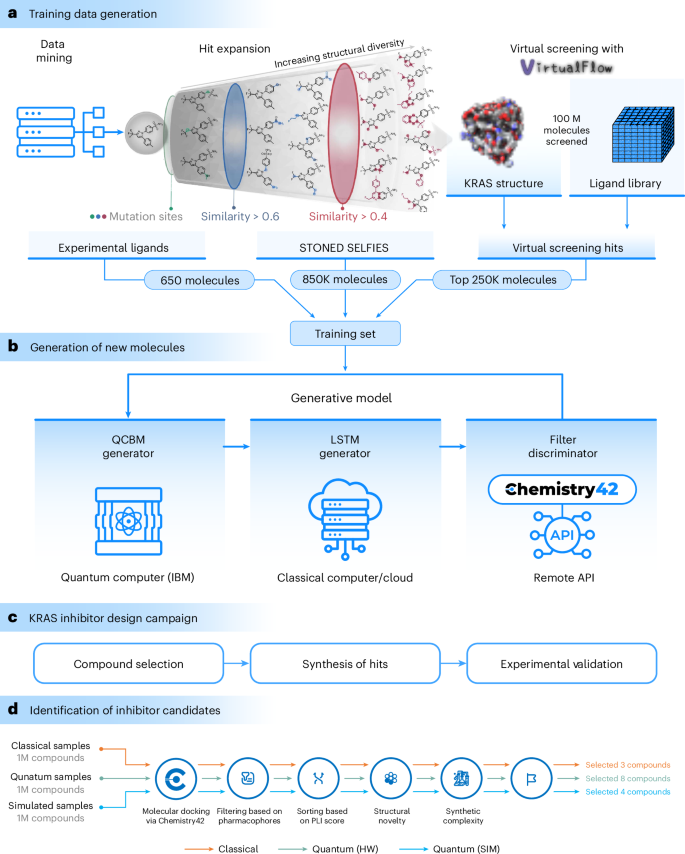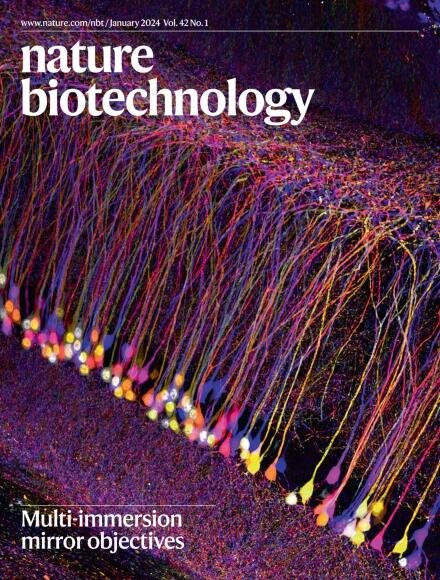Quantum-computing-enhanced algorithm unveils potential KRAS inhibitors
IF 33.1
1区 生物学
Q1 BIOTECHNOLOGY & APPLIED MICROBIOLOGY
引用次数: 0
Abstract
We introduce a quantum–classical generative model for small-molecule design, specifically targeting KRAS inhibitors for cancer therapy. We apply the method to design, select and synthesize 15 proposed molecules that could notably engage with KRAS for cancer therapy, with two holding promise for future development as inhibitors. This work showcases the potential of quantum computing to generate experimentally validated hits that compare favorably against classical models.

量子计算增强算法揭示潜在的KRAS抑制剂
我们引入了一种量子经典生成模型用于小分子设计,特别是针对癌症治疗的KRAS抑制剂。我们应用该方法设计、选择和合成了15种可能与KRAS显著结合用于癌症治疗的分子,其中两种有望成为未来发展的抑制剂。这项工作展示了量子计算的潜力,可以产生与经典模型相比更有利的实验验证命中。
本文章由计算机程序翻译,如有差异,请以英文原文为准。
求助全文
约1分钟内获得全文
求助全文
来源期刊

Nature biotechnology
工程技术-生物工程与应用微生物
CiteScore
63.00
自引率
1.70%
发文量
382
审稿时长
3 months
期刊介绍:
Nature Biotechnology is a monthly journal that focuses on the science and business of biotechnology. It covers a wide range of topics including technology/methodology advancements in the biological, biomedical, agricultural, and environmental sciences. The journal also explores the commercial, political, ethical, legal, and societal aspects of this research.
The journal serves researchers by providing peer-reviewed research papers in the field of biotechnology. It also serves the business community by delivering news about research developments. This approach ensures that both the scientific and business communities are well-informed and able to stay up-to-date on the latest advancements and opportunities in the field.
Some key areas of interest in which the journal actively seeks research papers include molecular engineering of nucleic acids and proteins, molecular therapy, large-scale biology, computational biology, regenerative medicine, imaging technology, analytical biotechnology, applied immunology, food and agricultural biotechnology, and environmental biotechnology.
In summary, Nature Biotechnology is a comprehensive journal that covers both the scientific and business aspects of biotechnology. It strives to provide researchers with valuable research papers and news while also delivering important scientific advancements to the business community.
 求助内容:
求助内容: 应助结果提醒方式:
应助结果提醒方式:


